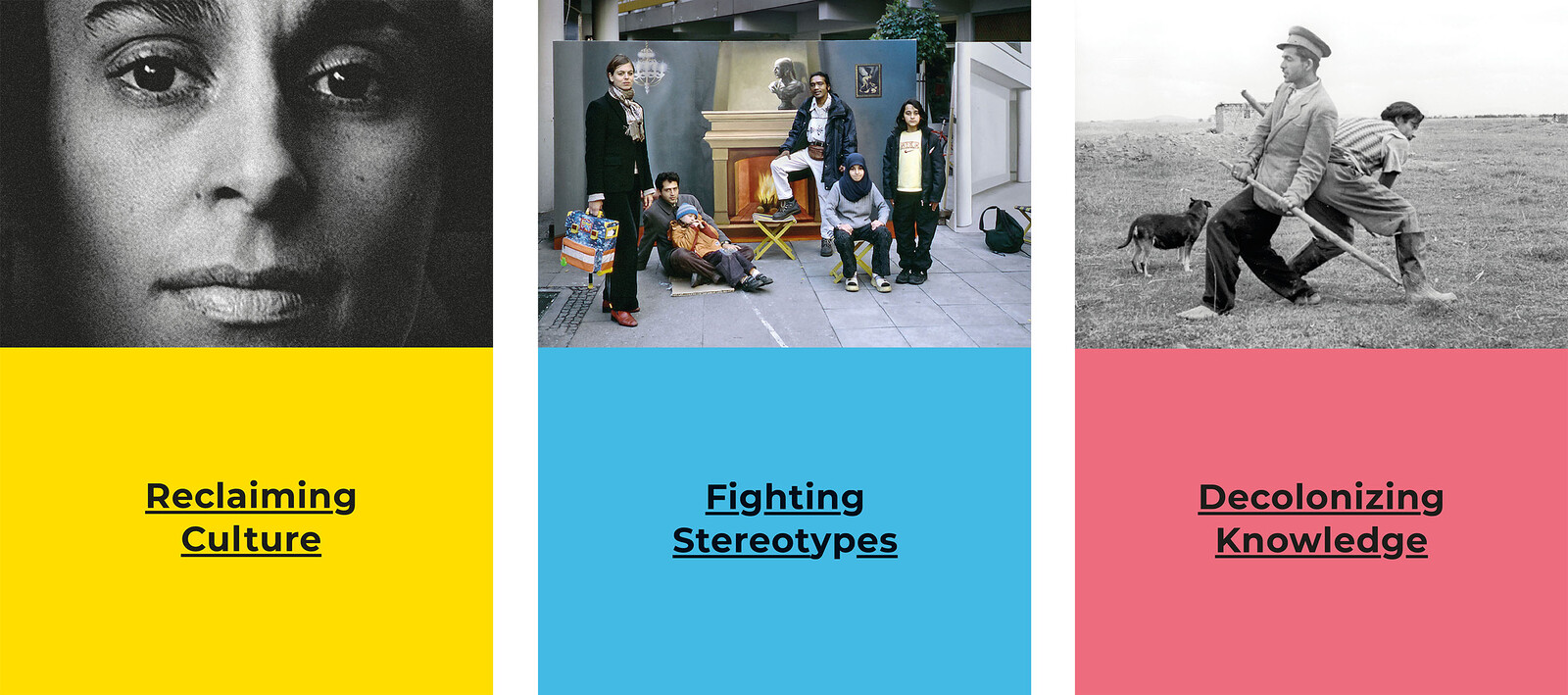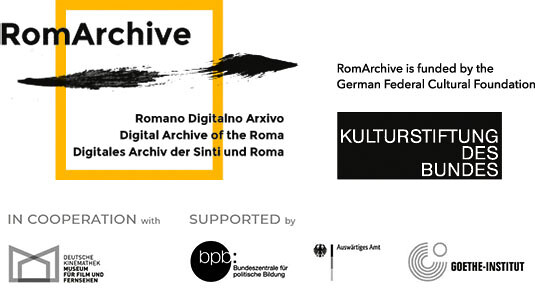International online project informs about Romani arts and cultures
For centuries, Romani artistic production has been part of, and has strongly influenced, European cultural history. RomArchive, the Digital Archive of the Roma allows these contributions to finally be seen. The RomArchive collection contains materials from ten archive sections: Dance, Film, Flamenco, Literature, Music, Theatre & Drama, Visual Arts, Politics of Photography, the Romani Civil Rights Movement, and the Holocaust (“Voices of the Victims”). These materials have been acquired by 14 curators from private collections, museums, archives, and libraries around the world.
By means of narratives told by Roma themselves, RomArchive offers for the first time a reliable source of knowledge that is accessible through the Internet—internationally in three languages (English, German, and Romanes). Consistently following the principles of Romani self-representation, RomArchive is shaped by Roma in various positions of responsibility—as curators, artists, scholars, and board members, who counteract stereotypes and prejudices with the richness of their cultures.
The participants in the project—within the various working groups there are around 150 actors from 15 countries across Europe and beyond—form a worldwide network of artists, scientists and activists, most of whom come from a Roma community. Here the most diverse interests, cultural identities and national differences come together—German Sinti, Spanish Gitanos, Eastern European Roma and Romani Travellers from Great Britain discuss a common goal: How can self-representation succeed despite all differences? How can counter-narratives and counter-images be created to contrast against the constantly repeated external attributions and stereotypes with which everyone is confronted?
For it is not Roma who dominate their image in public, but rather the clichés, attributions and images of others—which have always been marked by a mixture of fascination and contempt. Exclusion and disregard are revealed not least by the fact that the diverse cultures of Roma are largely ignored in European cultural institutions.
RomArchive provides an opportunity for majority societies to ascertain the richness of their culture, to which Roma have contributed much more than most people are aware—and a way for minority representatives to reclaim their own arts, their own art history and their own cultures.
Curators
Dance Isaac Blake (Great Britain). Film Katalin Bársony (Hungary). Literature Dr. Beate Eder-Jordan (Austria). Music Dr. Petra Gelbart (Czech Republic/USA). Theatre & Drama Dragan Ristić (Serbia) Co-curator Miguel Ángel Vargas (Spain). Visual Arts Tímea Junghaus (Hungary). Interdisciplinary Section Flamenco Gonzalo Montaño Peña (Spain). Politics of Photography André Jenö Raatzsch (Germany). Romani Civil Rights Movement Dr. Thomas Acton (Great Britain), Dr. Angéla Kóczé (Hungary), Dr. Anna Mirga-Kruszelnicka (Poland), Dr. Jan Selling (Sweden). Holocaust “Voices of the Victims” Dr. Karola Fings (Germany).
Advisory board
Pedro Aguilera Cortés (Spain). Dr. Gerhard Baumgartner (Austria). Dr. Nicoleta Bitu (Romania). Professor Dr. Klaus-Michael Bogdal (Germany). Professor Dr. Ethel Brooks (USA). Ágnes Daróczi (Hungary). Merfin Demir (Germany). Dr. Jana Horváthová (Czech Republic). Zeljko Jovanovic (Hungary). Oswald Marschall (Germany). Moritz Pankok (Germany). Romani Rose (Germany). Riccardo M Sahiti (Serbia/Germany). Dr. Anna Szász (Hungary).
Project initiators and directors
Isabel Raabe, Franziska Sauerbrey
Funding and sustainability
The German Federal Cultural Foundation supports the project with EUR 3.75 million. The European Roma Cultural Foundation and the Central Council of German Sinti and Roma assisted the project from the very beginning. The Goethe-Institut supports the work of RomArchive and supports it with its own events. The Deutsche Kinemathek – Museum für Film und Fernsehen is the cooperation partner for the technological implementation. The Federal Agency for Civic Education is involved in the promotion of RomArchive and intends to support the editorial management of the archive from 2019 for a further five years. RomArchive is also supported by the Federal Foreign Office.
RomArchive has been published in January 2019 and will now be institutionalized. The responsibility of RomArchive is being handed over to the European Roma Institute for Arts and Culture (ERIAC) who will continue the archive and further develop it.
RomArchive
Digital Archive of the Roma
Digitales Archiv der Sinti und Roma
Romano Digitalno Arxivo/Arhivo
romarchive.eu
mail [at] romarchive.eu


